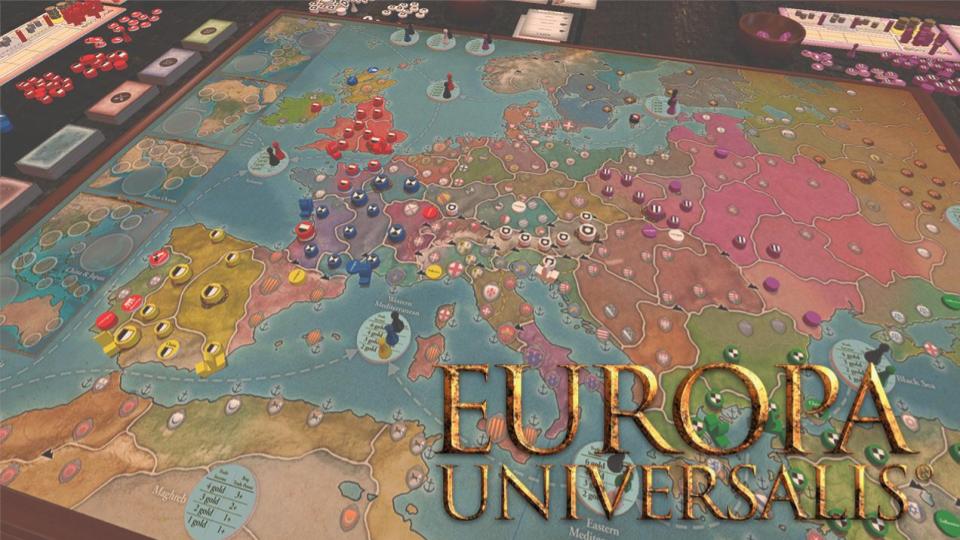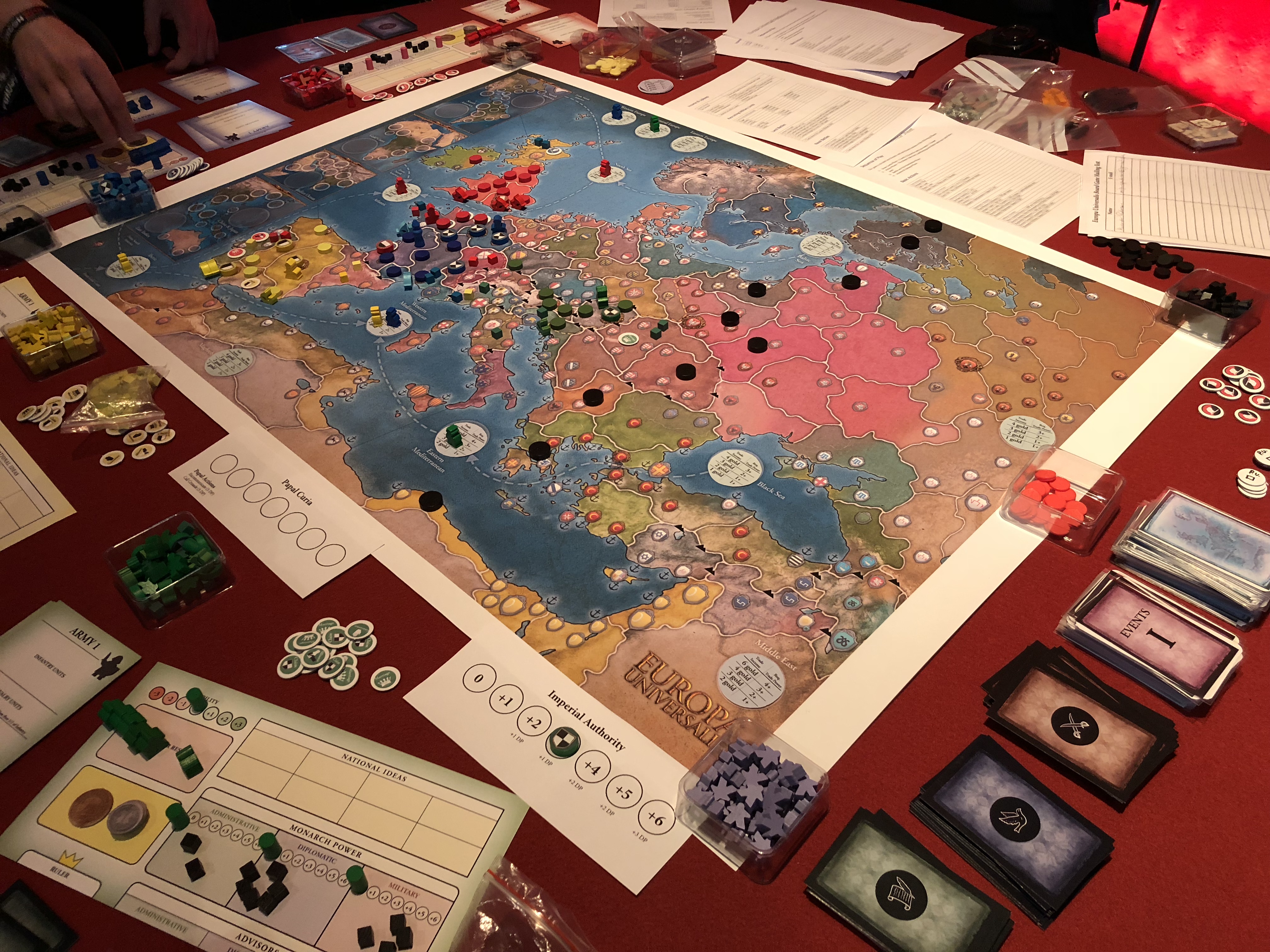The Europa Universalis board game is shaping up to be a monster
An early look at the board game of the video game of the board game.

Europa Universalis, in all its incarnations, is a game with ambitious scope and mechanical depth, let alone complexity. As part of their campaign to publish board games of their video games, Paradox Interactive is letting Aegir Games take a crack at creating a Europa Universalis board game. Yes, this means that the Europa Universalis series—the first of which was itself based on a board game—is coming home to roost on the tabletop after 25 years away. I got time to talk with designer Eivind Vetlesen at Paradox’s yearly event, PDXCon, where I quizzed him on specifics and sat down for a hands-on round with the prototype.
If you’re not familiar with reading previews of board games, know that this one especially is subject to a lot of change. It’s licensed, and has a designer, but there’s not even word on who’s going to be publishing it yet. A lot can change between now and release.
The real impression I can give you is that it’s going to be a monster. You can know that from its stated design goal of a 4-6 hour play time depending on scenario: which, if it’s anything like most games of its type, will be more like 8. It’s no World in Flames, but it felt like something between a high player count Twilight Imperium and A Game of Thrones with a dash of Napoleon in Europe. With players getting an overview and learning as they went, my hands-on preview of a four player, 1444 scenario got through single round in an hour and a half. It’s clear that Vetlesen means to implement every mechanic from the video game that makes sense on the tabletop.
The initial setup will be determined by scenarios, like the one I played with France, England, Castile, and Austria. Another, for example, might be five players, with Austria, Muscovy, The Ottoman Empire, and Poland-Lithuania, maybe adding Sweden for a sixth. Though the game will include eight or more nations playable, the intention is for six players to be the maximum—based on scenario. No matter the setup, it's more like a historical 4X than a square-off-and-fight wargame. It maintains the empire-building aspects of Europa Universalis, requiring you to improve relations with neutral neighbor nations, ally with them, and absorb them through marriages, personal unions, or demonize them and line up some justified wars. That means there’s an early game, where players draw lines of influence and power; a middle, where they build up armies, trade, and colonize; and a late game, where players start trying to take each other down.

Turn actions and history are driven by a four decks of cards. Three of those correspond to Europa Universalis IV’s monarch points: Diplomacy, Administrative, and Military. Those cards had both actions and characters on them, people you’d play to be your country’s next king or general or economist, so choosing whether to use a valuable royal marriage card to secure an ally was hard when it was also a diplomatic genius you’d like to sit on your country’s throne.
The other deck, events, is a mandatory draw and play each round—these are the random historic events, things like nonspecific plagues or religious turmoil, or even such specifics as the Iberian Wedding uniting the crowns of Castile and Aragon into the Kingdom of Spain. These events are divided into four sections, each corresponding to one of Europa Universalis IV’s ages: Discovery, Reformation, Absolutism, and Revolutions. Which cards are used would correspond to which scenario you’re playing. Events were one of the real sources of chaos in the demo I played, forcing players to time a bad thing for themselves and others at the least bad time during the round. Playing your event early was key, because it allowed you to stop taking actions and pass for the round—netting you some sweet, sweet bonus cash.
Those ducats were important because much like the early phases of EU on PC, money was tight and you needed it for just about everything worthwhile. Trade was a strong way to make money, deploying merchants and ships to nodes around the map, but you had to activate your trade power by drawing the right location cards from a deck, and that meant you couldn’t truly rely on trade to bring in gold. It’s one of the aspects that felt like a new innovation, not just a straight-up port of the video game. Alongside the more abstract colonization and exploration mechanics, that felt like a riff on the existing theme that’d ultimately make for a stronger game focusing on a more limited geographical area.
Keep up to date with the most important stories and the best deals, as picked by the PC Gamer team.
Overall, I was on board with Vetlesen and Paradox’s vision. It felt like a big ask for a board game to take on what Europa Universalis’ scale and scope, but I could see where design choices had been made to pare that down to a sleek and streamlined form. Even if that’s still a hulking cardboard monster, I’ll likely lay down the cash and entire weekend required to try it out when they get this thing designed, published, printed, and shipped to my door.
Jon Bolding is a games writer and critic with an extensive background in strategy games. When he's not on his PC, he can be found playing every tabletop game under the sun.

